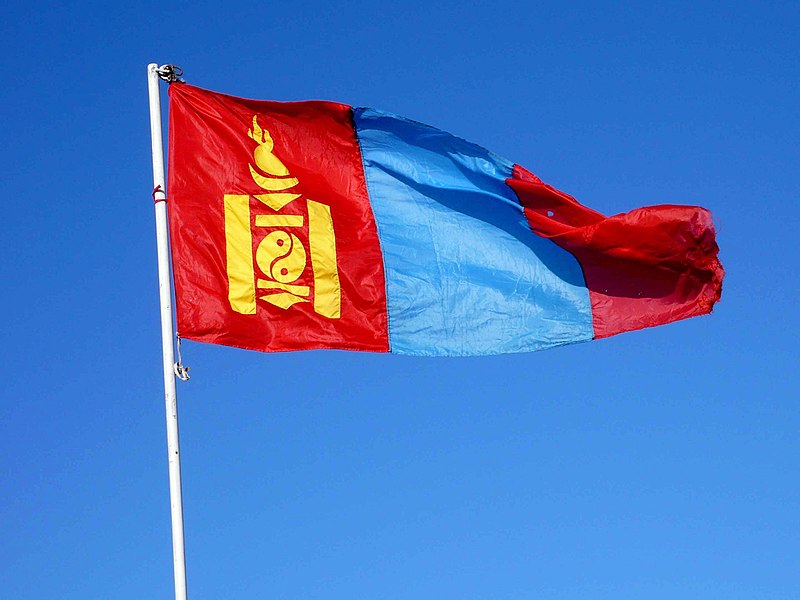
On January 13th, Mongolia marked the 30th anniversary of its first democratic constitution. A communist country for most of the 20th century, Mongolia has today proven itself a buoy of democracy in a region where authoritarianism, corruption and disinformation are on the rise. Since its adoption, the constitution has institutionalized Mongolia’s democratic system and enjoyed wide public support for its preservation.
To honor the occasion, the International Republican Institute (IRI) is highlighting Mongolia’s recent democratic milestones and showcasing how its programming has helped the country achieve them.
Prior to Mongolia’s June 2020 parliamentary elections – which saw 76 percent voter turnout – IRI conducted a nationwide youth poll to gauge public sentiment on democracy. The survey’s findings showed overwhelming support for strengthening the country’s democracy and the continuation of its essential pillars. Despite 60 percent of surveyed Mongolians acknowledging little confidence in the current political parties, the overwhelming majority (94 percent) believes inclusivity is an essential component of democratic resilience.
Following the June parliamentary and October local elections, Mongolia saw women make up 17 percent of the State Great Hural (parliament), 15 percent of the Citizens’ Representative Khurals (provincial councils), 18 percent of the Capital City’s Citizens’ Representative Khurals and fill six leadership positions in the capital. Additionally, it was recently announced that Mongolia will have its first woman seeking to become a presidential candidate for the upcoming June 2021 election. While these signify positive trends for greater and more diverse participation, the democratic nation still has steeper hills to climb before inclusion and representation are truly reflective.
As the nation prepares for the pivotal presidential election in June, IRI’s Strengthening Women and Youth Engagement in the Electoral and Political Processes of Mongolia (SWYEEPPM) program remains dedicated to increasing representation in Mongolia. In one such example, local SWYEEPPM partner the Parent Teacher Association of Mongolia (PTAM) is training citizens who are deaf or disabled to become the country’s first-ever persons with disabilities (PWDs) official election observers. In conjunction, the program is working with the General Election Commission (GEC) to expand voter education resources for PWDs, while assessing and submitting recommendations for improved access to election polling sites.
Another local partner, Youth Policy Watch, is building the capacity of youth and women coalitions to lead advocacy initiatives that promote women’s issues and their engagement with political parties and elected officials. In a similar vein, partner Globe International Center is conducting trainings for youth and women journalists to counter misinformation campaigns and promote ethical journalism ahead of the upcoming election. These activities are just a few examples of many in which IRI, alongside local Mongolian partners, are working to bolster the ideals of representative government and encourage political participation through a variety of platforms.
In December 2020, the State Great Hural (SGH) passed an election law that created provisions re-affirming the use of indelible ink on voters’ hands, increasing polling center transparency, establishing surveillance cameras at all polling stations and requiring 100 percent manual ballot count in addition to the automated ballot count done by electronic voting machines. In tandem, the SGH is currently drafting legislation to establish a Judicial Disciplinary Committee (JDC) – an independent body which would have powers to suspend or remove judges. Proponents of the bills in the SGH claim that these legal revisions will set a more transparent selection procedure for the members of the JDC and ultimately increase public trust in the judiciary. Ahead of the presidential election, both legislative changes are important in ensuring election integrity and confidence, domestically and internationally, and are being closely monitored by IRI and local CSOs to ensure the spirit and independence of the laws remain intact. Alongside programs such as the previously mentioned PWD observer trainings, that will expand access and diversity in electoral process inclusivity, these are positive trends in ensuring Mongolia’s elections remain free and fair.
Through its elections, democratic laws and inclusive civil society programming, Mongolia has withstood significant external pressures due to a population committed to accountability, transparency and the preservation of its constitution drafted 30 years ago. Despite its democratic nascency, the country’s resilience proves its strong will for independent governance and will continue to strive to be an example of a successful democracy in Asia that encourages civic activism and the participation of all its citizens.
Top